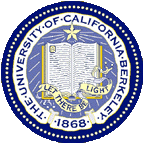|
|
||||
Programming case studiesA case study consists of a programming problem, one or more solutions to the problem, and a narrative description of the process used by an expert to produce the solutions. Rationale for case studies and ideas for using them in a programming course are laid out in the following papers:
Marcia Linn and I put together two collections of case studies in Pascal programming. You can get them used at amazon.com for around $2—such a deal!
Other textbooks with a strong case study approach include the following:
The Advanced Placement Computer Science examinations are partly based on a case study. Starting with the May 2008 exam, this will be the GridWorld case study. Our Scheme-based introductory programming course for non-CS majors uses several case studies. The self-paced version of the course, CS 3S, uses the case studies listed below. I'm still developing case studies. In particular, I've tried two new ones in CS 61B, our course on data structures and programming methodology. Comments and feedback are welcome.
|


